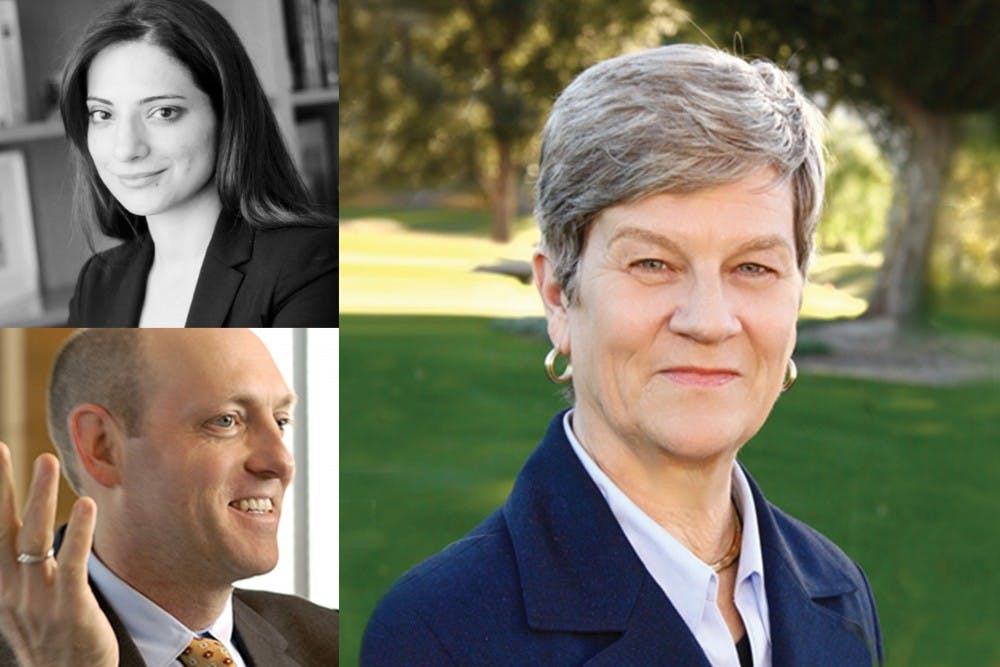
Photos from: Pinar Yildirim (top left), Maurice Schweitzer (bottom left), and Kathleen Hall Jamieson (right)
With fake news stories abounding during the 2016 election cycle, it is no wonder that many Americans have become concerned over the validity of the media that they consume.
Several Penn professors have been particularly outspoken in the war against fake news, aiming to do their part to ensure modern media is accurate.
Kathleen Hall Jamieson, a professor in the Annenberg School for Communication, hopes to change the way that people view these false stories. Jamieson said that she prefers to think of fake news as “viral deception,” as this term better “captures how these stories are intentionally deceitful.”
She believes that “viral deception” outlets aren’t accidentally misrepresenting the information. Instead, she described how their purpose is to “deliberately report lies” in order to cause a public stir.
Jamieson was especially critical of President Trump’s contentious attitude toward the mainstream media, which he has labeled “fake news” on several occasions, using the term to refer to disparaging or misreported information rather than manifestly false stories.
On CNN’s “Reliable Sources” on March 5, Jamieson told host Brian Stelter that Trump “creates a dilemma for journalists ... [by always] shifting the burden of proof.” She noted that this makes it challenging for journalists to allege anything against Trump without him calling their legitimacy into question.
Pinar Yildirim, a marketing professor in the Wharton School, said the rise of social media usage has contributed to the rise of fake news.
“Everyone is on Facebook and Twitter now, and [these sites] can’t filter out all of the information people see,” Yildirim said. “Fake news now just naturally falls into people’s feeds.”
For this reason, Yildirim noted that newspapers have an “especially important responsibility to make sure their content is accurate.”
Factcheck.org, a political fact checking website that is part of the Annenberg Public Policy Center, recently partnered with Facebook to check specific fake news articles that users flag.
On Jan. 31, Wharton Dean Geoffrey Garrett moderated a panel discussion with three Penn professors on the state of fake news during the Trump administration.
“In a world of fake news, alternative facts, ‘truthiness,’ where the currency seems to be ever more outrage, what we all want to do is to ... be authoritative, to be analytical, and to back up opinions with facts and analysis,” Garrett said at the discussion’s opening.
Maurice Schweitzer, a professor of Operations, Information and Decisions at Wharton, added that Penn students should “be suspicious of reports that strain credibility — especially if the source is odd.”
“Some [entrepreneurs] have figured out how to make money by attracting attention with fake news,” Schweitzer said.
The Daily Pennsylvanian is an independent, student-run newspaper. Please consider making a donation to support the coverage that shapes the University. Your generosity ensures a future of strong journalism at Penn.
Donate




